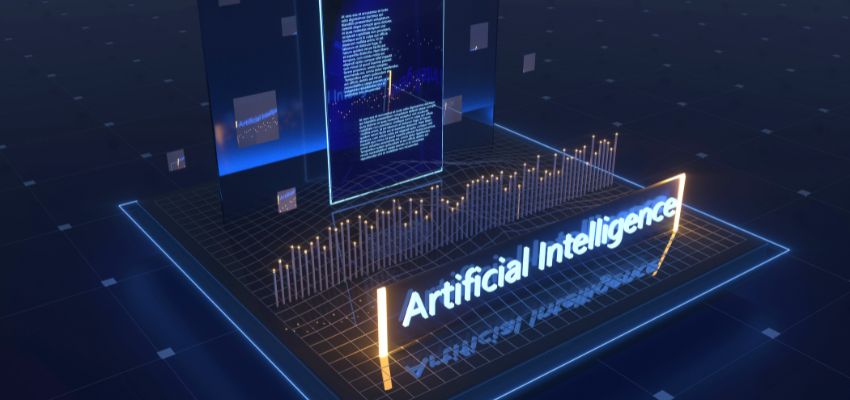Agentic AI Trends in 2025: Navigating the Future of Autonomous Intelligence

Artificial Intelligence (AI) has undergone significant transformations over the past decade, evolving from basic automation tools to sophisticated systems capable of complex decision-making. In 2025, the spotlight is on Agentic AI—autonomous AI agents that not only process information but also act independently to achieve specific goals. This article delves into the pivotal trends shaping Agentic AI, its applications across various industries, and the challenges and opportunities it presents.
What is Agentic AI?

Agentic AI refers to AI systems endowed with the capability to perceive their environment, reason about it, make decisions, and execute actions autonomously. Unlike traditional AI models that require explicit instructions for each task, Agentic AI agents can plan and perform tasks without continuous human intervention. This autonomy enables them to handle complex, multi-step processes, making them invaluable in dynamic and unpredictable settings.
Read more: Enhancing Browsing with Opera’s New Agentic AI
Key Trends in Agentic AI for 2025
1. Personalized Agentic AI: Your Digital Twin, Reimagined
Agentic AI is becoming deeply personalized, evolving from general-purpose assistants into intelligent, context-aware companions that continuously learn and adapt to individual users’ behaviors, preferences, emotions, and goals.
These agents leverage contextual memory, real-time data streams, and persistent user modeling to create seamless and intuitive interactions. The result is a shift from reactive AI to proactive digital companions that understand your routine and anticipate your needs.
Real-world applications:
-
Lifestyle Management: Virtual assistants can proactively schedule appointments, order groceries, manage smart home devices, and suggest breaks during high-stress periods using biometric cues.
-
Health & Wellness Coaching: Integrated with wearables, these agents monitor stress levels, recommend exercise routines, adjust diet plans, and sync with medical apps for comprehensive wellness tracking.
-
Financial Guidance: AI agents analyze income, spending, and financial goals to provide recommendations on budgeting, investments, and savings—sometimes even initiating actions based on your approval settings.
Why it matters: Hyper-personalized agentic experiences are revolutionizing customer experience and engagement across industries. Brands that adopt these AI models can expect higher retention, stronger loyalty, and greater long-term value.
2. Agentic AI in Business: From Process Automation to Autonomous Decision-Making
Across industries, businesses are embedding agentic AI into core operations, moving beyond robotic process automation to intelligent agents capable of managing complex workflows with minimal human intervention.
Customer Support
Traditional chatbots are being replaced by agentic AI systems that can manage entire customer service journeys—from answering inquiries to resolving complaints and managing refunds—using real-time data and natural language understanding.
For instance, a banking AI agent can access account details, detect fraudulent transactions, offer solutions, and guide users through dispute resolution—without any human escalation.
Marketing and Sales
Agentic AI is driving entire marketing operations, including:
-
Segmenting customer data in real time
-
Designing dynamic, personalized campaigns
-
Conducting A/B testing and optimizing creative elements based on performance
Major brands are using AI to deliver personalized email campaigns, optimize ad placements, and predict buyer behavior—resulting in higher conversion rates and ROI.
Supply Chain and Operations
AI agents now handle supply chain forecasting, logistics management, and supplier communication autonomously. These agents can:
-
Forecast demand using historical trends, social media activity, and seasonal data
-
Identify stock-out risks and initiate procurement workflows
-
Reroute inventory and deliveries based on real-time constraints
Businesses leveraging agentic AI in their supply chain operations are seeing increased resilience, faster response to disruptions, and reduced costs.
3. Agentic AI in Healthcare: From Diagnostics to Patient Empowerment
Agentic AI is transforming healthcare by enhancing decision-making, personalizing patient care, and accelerating research and innovation.
Diagnostics and Imaging
AI agents now analyze vast quantities of medical data—including images, test results, and health records—to assist doctors in making faster and more accurate diagnoses. These agents provide suggestions, detect anomalies, and even explain their reasoning in plain language, improving trust and collaboration between human clinicians and machines.
Drug Discovery and Research
By simulating molecular interactions, analyzing datasets from clinical trials, and running predictive models, agentic AI is significantly speeding up the drug discovery process. What used to take years can now be narrowed to weeks, reducing R&D costs and bringing treatments to market faster.
Remote Patient Monitoring
Integrated with wearable devices, AI agents can:
-
Monitor vital signs and detect anomalies in real time
-
Send personalized reminders for medications or doctor visits
-
Escalate care when symptoms worsen
This proactive care approach empowers patients to take more control of their health while alleviating the pressure on overstretched healthcare systems.
Why it matters: Agentic AI is shifting healthcare from reactive to proactive, enabling preventative care models that are more cost-effective, scalable, and patient-centered.
4. Agentic AI in Education: Adaptive Learning in Real Time
Education is undergoing a digital renaissance, powered by agentic AI that provides personalized, real-time support to students and teachers.
Personalized Learning
AI agents can assess a student’s strengths, weaknesses, and learning style to create customized lesson plans. These plans adjust in real time based on progress, ensuring each learner gets exactly what they need at the right pace.
Online platforms are already using AI tutors that track user engagement, introduce motivational nudges, and offer exercises tailored to individual goals.
Automated Grading and Feedback
Teachers are benefiting from agents that can:
-
Evaluate student assignments using natural language processing
-
Provide detailed, constructive feedback
-
Track performance over time and offer targeted recommendations
This reduces teacher workload and improves the speed and quality of feedback students receive.
Classroom Management and Early Intervention
Agentic AI tools also support educators by:
-
Monitoring class participation
-
Flagging students who may be struggling or disengaged
-
Recommending targeted interventions before performance drops
As a result, teachers can deliver more inclusive, equitable, and responsive instruction.
Why it matters: AI-driven education tools are making personalized learning accessible and scalable, particularly important for remote learning environments and underserved communities.
5. Agentic AI in Transportation: Intelligent Mobility at Scale
Transportation systems are being reshaped by agentic AI through smarter vehicles, more efficient logistics, and responsive urban traffic infrastructure.
Self-Driving Technology
AI agents serve as the core decision-making system for autonomous vehicles. They process sensory data in real time, make driving decisions, and communicate with other vehicles and road infrastructure.
Companies like Tesla and Waymo are working on Level 5 autonomy, where vehicles operate completely independently—even under complex traffic conditions and changing weather.
Urban Traffic Optimization
Agentic AI systems are managing entire cities’ transportation networks. By analyzing traffic flow data, they adjust traffic signals, reroute congestion, and prioritize public transit or emergency vehicles in real time.
Cities like Barcelona and Singapore are early adopters, using agent-based coordination to reduce commute times and environmental impact.
Logistics and Fleet Management
Agentic AI is optimizing supply chains and delivery networks by:
-
Recalculating delivery routes based on current traffic, weather, and delivery windows
-
Clustering deliveries for efficiency
-
Managing vehicle maintenance through predictive analytics
Companies leveraging AI-driven fleet management are reducing emissions, improving delivery accuracy, and saving costs on fuel and manpower.
Why it matters: As urban populations grow and consumer demand increases, transportation networks will depend on Agentic AI to remain efficient, sustainable, and safe.
Challenges and Opportunities in Agentic AI
Scalability and Complexity Management
As Agentic AI systems grow in complexity, managing and scaling these systems pose significant challenges. Coordinating multiple autonomous agents requires robust architectures and efficient resource management to ensure seamless operation.
Interoperability and Standardization
With various developers creating AI agents, ensuring interoperability between different systems is crucial. Establishing industry-wide standards and open-source frameworks can facilitate seamless collaboration among diverse AI agents, akin to universal protocols in other technologies.
Security and Privacy Concerns
The autonomy of AI agents raises concerns about security and privacy. Ensuring that these agents operate within ethical boundaries and do not compromise sensitive data is paramount. Implementing robust security measures and privacy-preserving techniques is essential to build trust and ensure safe deployment.
Ethical and Legal Frameworks
The rise of autonomous AI agents necessitates the development of clear ethical guidelines and legal frameworks. Determining accountability for the actions of AI agents and ensuring their decisions align with societal values are critical considerations for policymakers and developers alike.
Workforce Transformation
The integration of Agentic AI into various industries is transforming the workforce landscape. While some fear job displacement, others view AI as an opportunity to shift human roles toward more strategic and creative tasks. Investing in reskilling and education programs can prepare the workforce for this shift, ensuring a harmonious integration of AI into the human work environment.
Case Studies: Agentic AI in Action
1. UiPath’s Transition to Agentic AI
UiPath, a leader in robotic process automation, is repositioning itself by integrating deterministic software automation with non-deterministic AI capabilities. This strategic shift aims to orchestrate AI agents, human workers, and traditional automation to enhance enterprise workflows.
2. Microsoft’s Copilot Agents
In 2025, Microsoft has expanded its Copilot initiative beyond simple assistants into true agentic systems. These agents can autonomously carry out tasks such as scheduling meetings, summarizing lengthy email threads, and even initiating follow-ups with team members. Microsoft CTO Kevin Scott emphasized the rise of “product managers for AI agents,” reflecting a future where businesses assign human overseers to guide and manage autonomous agent ecosystems.
How to Prepare for the Agentic AI Shift
For Businesses:
-
Audit your workflows to identify repetitive, data-driven tasks that AI agents can handle.
-
Invest in upskilling teams to work alongside AI, particularly in prompt engineering, AI governance, and agent orchestration.
-
Evaluate platforms and vendors offering mature agentic frameworks and integrate them with your existing IT ecosystem.
For Developers:
-
Learn emerging tools like LangChain, OpenAI’s Function Calling, and CrewAI.
-
Understand memory management for agents, as persistent state is critical to agent continuity.
-
Explore use cases where multi-step autonomy adds real value—data pipelines, API calls, and task chaining.
For Policymakers:
-
Begin drafting frameworks for AI liability and responsibility, especially for autonomous agents acting without direct supervision.
-
Encourage transparency and reporting standards for AI actions and decisions.
-
Establish ethical boundaries around AI autonomy, particularly in sectors like healthcare, education, and security.
Conclusion
Agentic AI in 2025 marks a transformative leap in the evolution of artificial intelligence. By empowering machines with autonomy, reasoning, memory, and collaborative capabilities, we’re entering an era where digital agents are no longer mere tools—but intelligent partners.
As these technologies become more embedded in daily life and business operations, the organizations that adapt quickly will enjoy increased efficiency, innovation, and competitive advantage. But this shift also demands thoughtful regulation, ethical considerations, and a renewed focus on human-AI collaboration.
Whether you’re a business leader, developer, or AI enthusiast, staying ahead of Agentic AI trends in 2025 will be essential in navigating this new frontier.





